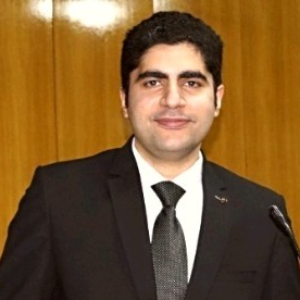Title : Duct-to-mucosa pancreaticojejunostomy after pancreaticoduodenectomy: Overview on the technique with our center experience in managing complications
Abstract:
Pancreatic cancer is one of the most important neoplasm in Western countries and it is the fourth cause of death from cancer. The radical surgical resection is the only curative option, but unfortunately more than 80% of patients presents unresectable disease to hospital access. For patients with malignant or benign disease of the pancreatic head and periampullary region, pancreaticoduodenectomy (PD) is the only potential approach to radical cure.
The safety of PD has been greatly improved with the advances in surgical technique and perioperative care since introduction of the procedure by Allen Whipple in 1935. Several methods have been proposed for reconstruction all aiming at better outcome. Since the introduction of PD for management of pancreatic head tumors, the pancreatic reconstruction remains an “Achilles`hee?”. Pancreatic anastomotic dehiscence is a leading cause of early post-operative morbidity and mortality.Many pancreatic anastomoses have been proposed to treat the pancreas remnant after Pancreaticoduodenectomy, and many meta-analyses of randomized control trials (RCTs) have found that pancreatico-jejunal anastomosis “duct-to-mucosa” is a commonly used as a reconstruction method in multiple pancreatic centers, which was first described by Warren and Cattell.One of these methods is the Blumgart anastomosis to pancreatico-jejunostomy (duct to mucosa). The advantage of this method is that the diversion of bile away from the pancreatico-jejunostomy site minimizes the pancreatic enzyme activation and this reduces the risk of pancreatic fistula formation. Another advantage is that if a pancreatic fistula forms, it will be a pure pancreatic fistula and these fistulae because lesser complications compared with complex pancreatic fistulae, in which the bile activates the pancreatic juice.It has been the most commonly employed method for pancreatic reconstruction aiming for a more physiological anastomosis to preserve the normal exocrine and endocrine functions.Therefore, duct-to-mucosa anastomosis is a theoretically more rational technique to avoid pancreatic fistulae. Since it is technically difficult to perform, duct-to-mucosa pancreaticojejunal anastomosis was formerly suggested for patients with a dilated pancreatic duct, whereas in recent years this procedure has been favored irrespective of the diameter of the pancreatic duct .An end-to-side pancreatojejunostomy is a risk-free reconstructive surgery. The duct-to-mucosa anastomosis is a potentially superior anastomotic procedure that may be utilized for any size duct and consistency of pancreas if done correctly. The goal of this retrospective study was to look at the perioperative risk factors for pancreatic anastomotic leakage and see if duct-to-mucosa leaking was present.
Conclusion : Pancreaticojejunostomy “Duct-to-mucosa” anastomosis was first established by Cattel in 1943. This procedure allows direct contact of the pancreatic duct with jejunal mucosa, avoiding direct contact of pancreatic juice with the cut end of the pancreas and thus assisting healing of the mucosa, protecting the anastomosis by embedding the pancreatic remnant under jejunal serosa. Therefore, duct-to-mucosa anastomosis is a theoretically more rational technique to avoid pancreatic fistulae. Since it is technically difficult to perform, duct-to-mucosa pancreaticojejunal anastomosis was formerly suggested for patients with a dilated pancreatic duct, whereas in recent years this procedure has been favored irrespective of the diameter of the pancreatic duct .




